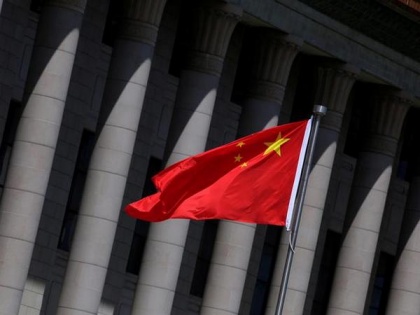Amid international pressure, China passes anti-sanctions law to counter foreign measures
By ANI | Published: June 10, 2021 05:56 PM2021-06-10T17:56:36+5:302021-06-10T18:05:13+5:30
Despite international concern, China's top legislative body on Thursday passed an anti-sanctions law, providing legal backing for Beijing's measures to counter foreign sanctions.

Amid international pressure, China passes anti-sanctions law to counter foreign measures
Despite international concern, China's top legislative body on Thursday passed an anti-sanctions law, providing legal backing for Beijing's measures to counter foreign sanctions.
The legislation was passed today at the closing session of the National People's Congress Standing Committee, however, the details of the law have not yet been made public, according to South China Morning Post (SCMP).
This will be the first major legal move by Beijing to retaliate against sanctions imposed by Western nations over China's handling of Xinjiang and Hong Kong.
Tam Yiu-chung, Hong Kong's sole delegate to the NPC Standing Committee, said that the State Council and its agencies would be responsible for coordinating the retaliatory measures under the new law.
"These measures can be applied to organisations and individual, as well as extended to the individuals' spouses, relatives and the organisations that they belong to," he said.
Under Article 6 of the new law, Beijing's retaliatory measures could include the denial of visa application or entry into China, Tam said. Even for visa holders, authorities could declare their document invalid and deport them.
Furthermore, the tangible and intangible properties of individuals could be frozen or remanded and institutions could be restricted from conducting any transaction with the individuals or organisations being targeted. The law also specified that no one in the country help foreign countries implement discriminatory measures, SCMP reported.
Individuals and organisations affected by sanctions could make claims in mainland courts, Tam added.
This comes after the US, the European Union, Britain and Canada sanctioned Chinese officials accused of human rights abuses in Xinjiang, prompting retaliatory counter measures from Beijing.
China has used various tools to respond to pressure from foreign sanctions in the past. In January, the Ministry of Commerce issued a "blocking statute" requiring Chinese companies to report any foreign restrictions on economic or trade activities.
According to SCMP, there have been concerns among foreign companies over the lack of transparency around the legislative process and the potential impact on businesses in China. Analysts have said that the businesses in China need to be wary of being linked to foreign entities under Chinese sanctions.
Chinese foreign ministry spokesman Wang Wenbin said the passage of the new law showed China's determination to protect its sovereignty and core interests and would not affect its relations with other countries.
The law was announced on Monday by the state media and skipped the third reading, much like the way the draconian National Security law was passed in Hong Kong.
Tian Feilong, an associate professor at Beihang University's law school, said that discussion about the law started last year when Donald Trump was still US president, but China was waiting to see how Trump's successor Joe Biden would approach relations with China.
New restrictions on Chinese companies were among the developments that had dismayed Beijing, he said.
Earlier, European companies have expressed discontent over a new Chinese anti-sanctions law, saying they are alarmed by the lack of transparency in the process.
"European companies in China are alarmed by the lack of transparency in this process - the first reading was never announced, and there is no draft to examine," said Joerg Wuttke, president of the European Union Chamber of Commerce in China.
"Such action is not conducive to attracting foreign investment or reassuring companies that increasingly feel that they will be used as sacrificial pawns in a game of political chess," Wuttke added.
( With inputs from ANI )
Disclaimer: This post has been auto-published from an agency feed without any modifications to the text and has not been reviewed by an editor
Open in app